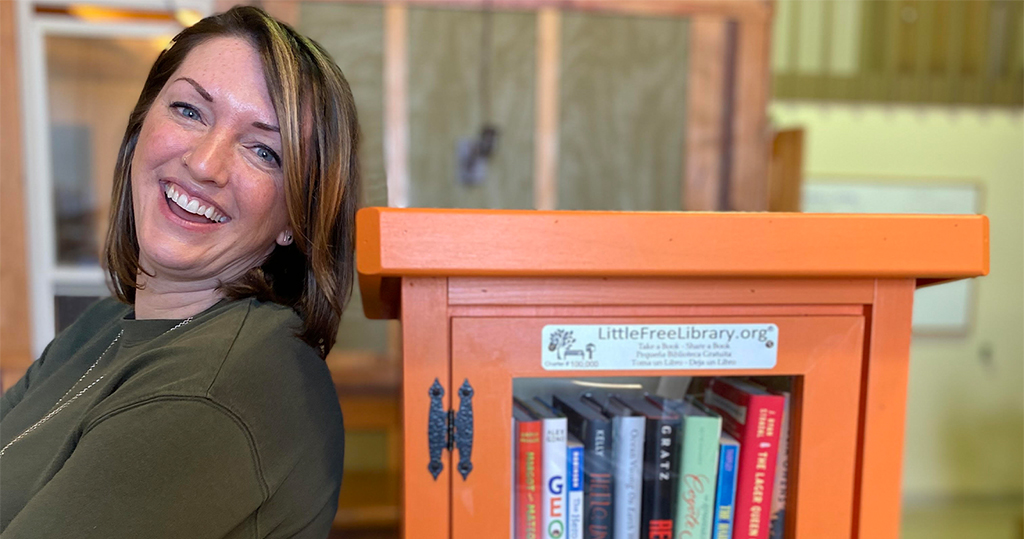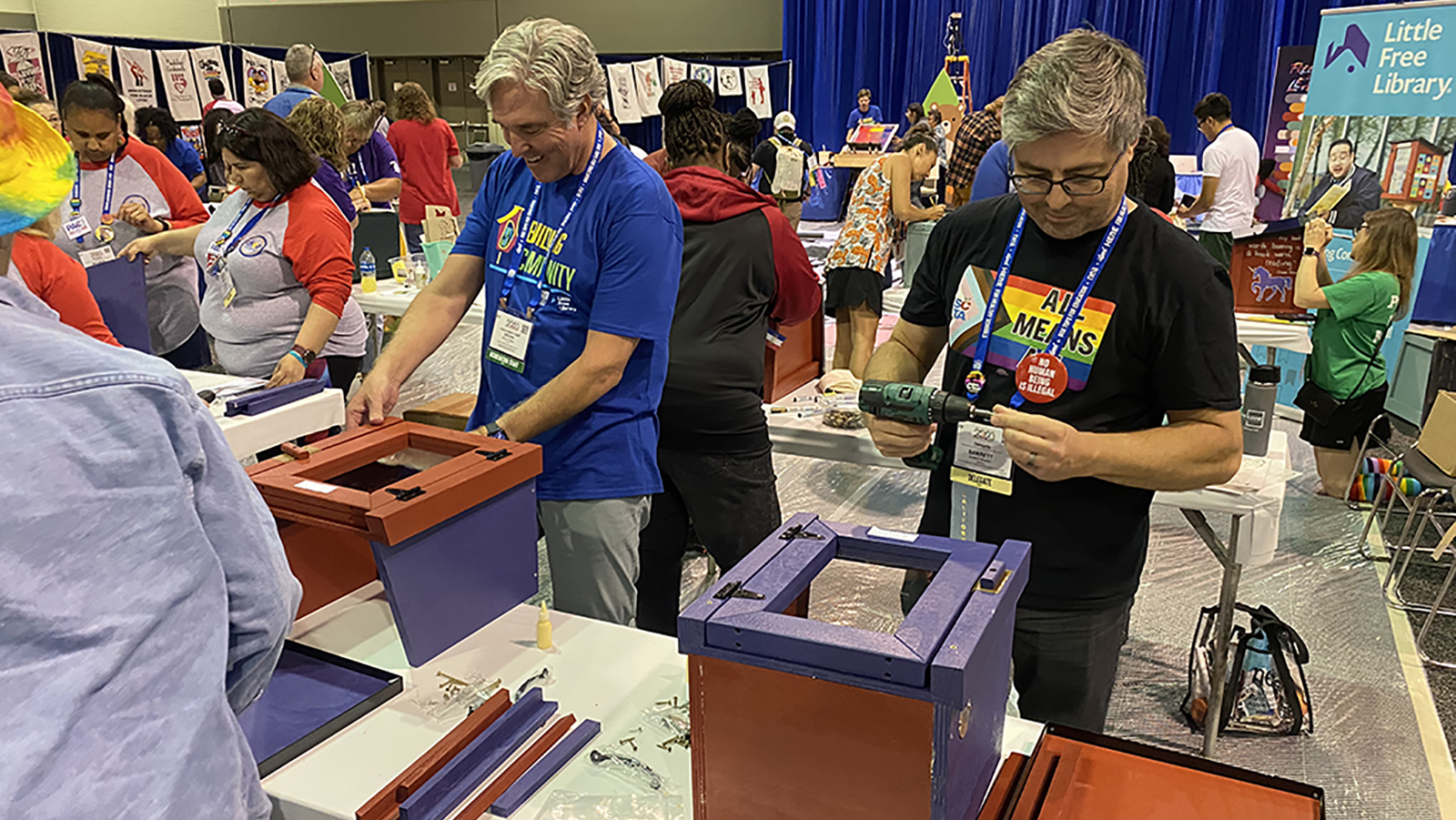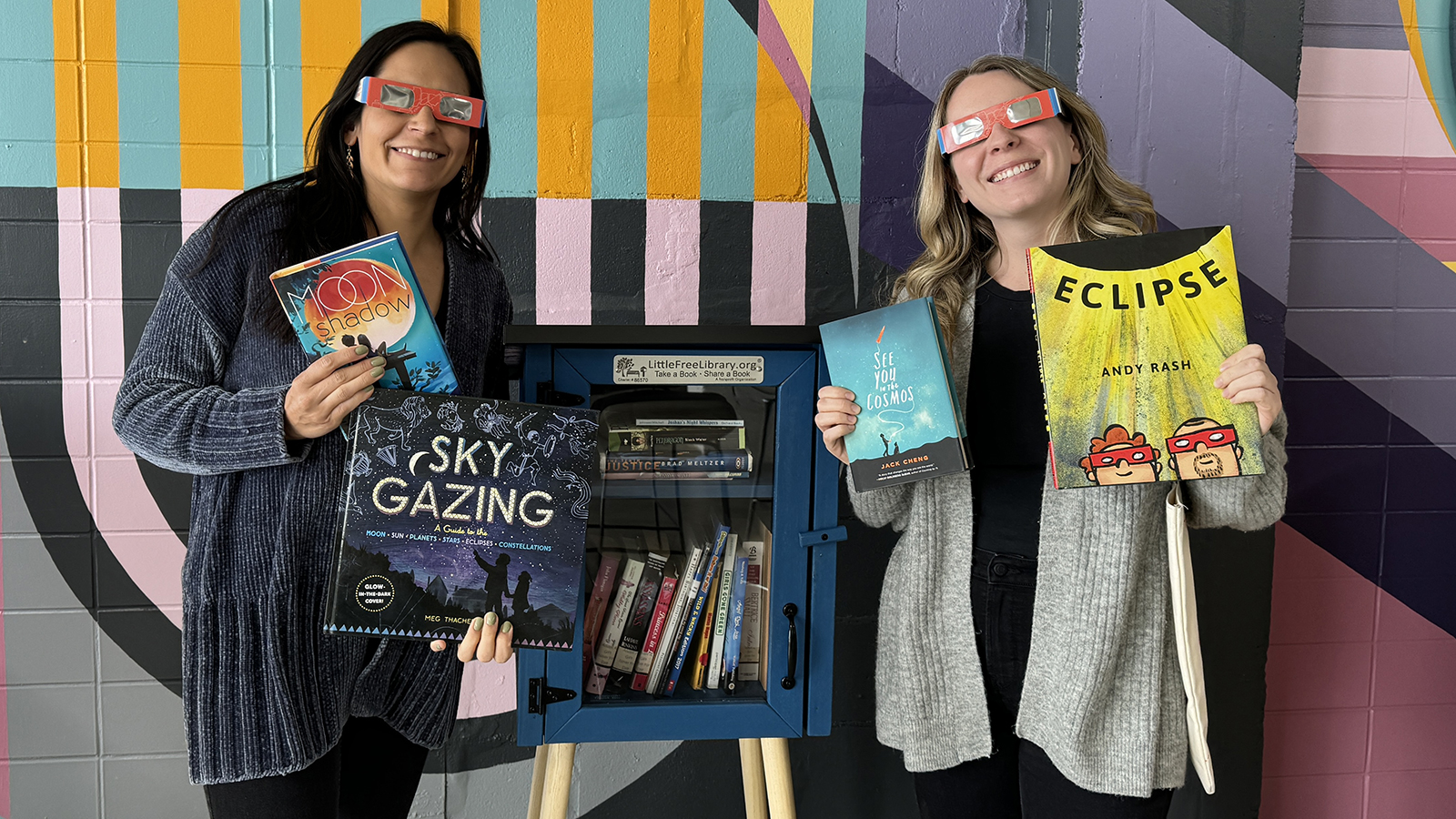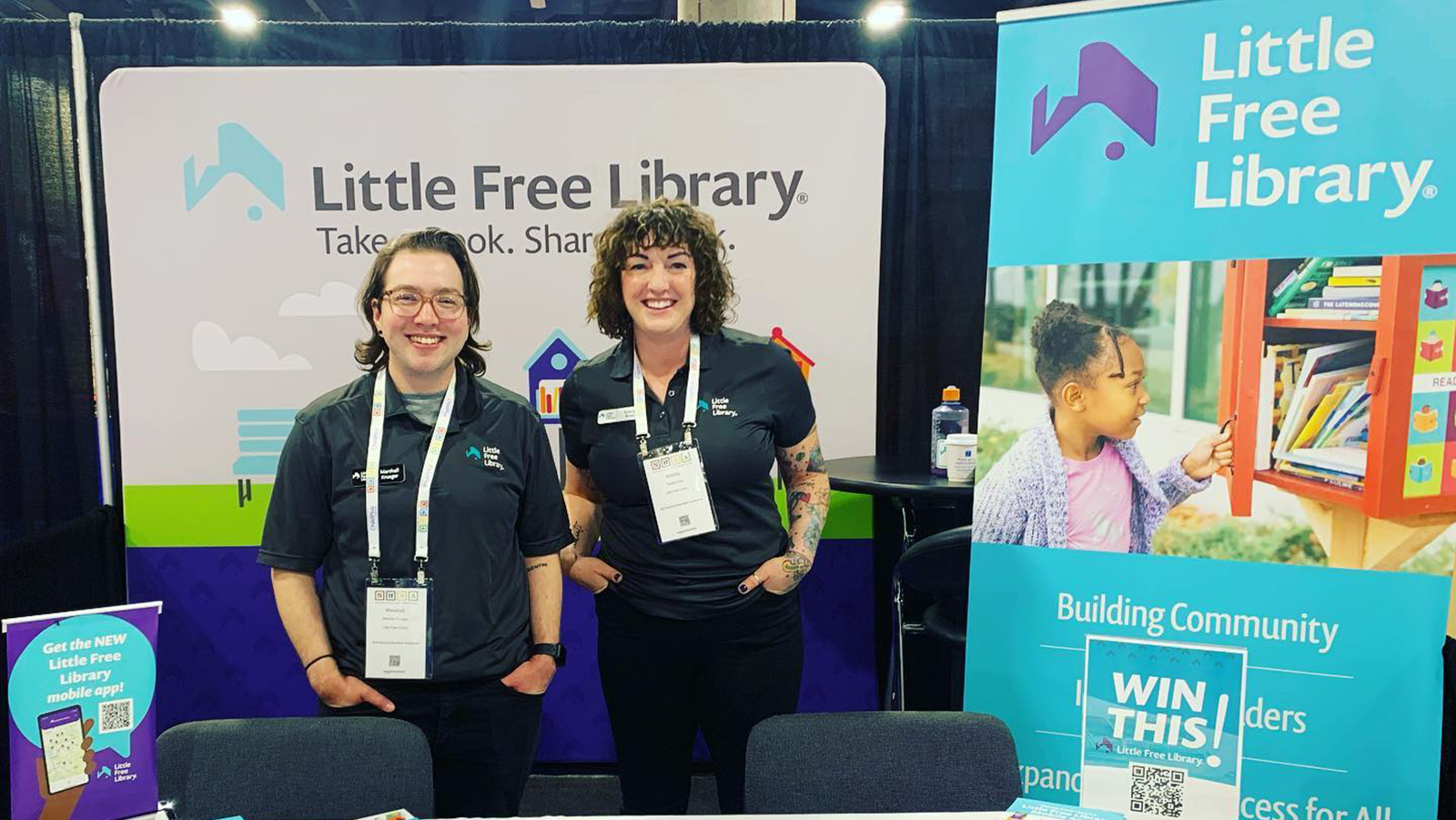
Interview: Shelby King from Little Free Library
Not everyone in the United States has access to a public library. So-called “book deserts” disproportionately affect underserved communities, particularly in rural areas, where one library may be the only resource for an entire county.
Little Free Library is working to change that, by expanding book access through a global network of volunteer-led book-exchange boxes. Today there are nearly 200,000 of these book-sharing boxes in 121 countries and all seven continents — even Antarctica.
As the Little Free Library’s director of programs, Shelby King advocates for literacy and access to books for all. When she heard about the total solar eclipse on April 8, she saw an opportunity to place Little Free Libraries along the path of totality, and to fill them with STEM books so that readers could learn not only about the eclipse but about STEM more broadly. Through key community partnerships, 24/7 book access and support from the Simons Foundation, King and her team have made this opportunity a reality.
We recently spoke with King to learn more. The transcript below has been edited for clarity and brevity.
Hi, Shelby! Can you tell us about yourself?
I’m the director of programs at Little Free Library. I’ve been with Little Free Library for nine years, so I’ve seen quite an evolution from when I first started. It’s been a really wild ride — and a really exciting one. Outside of work, I volunteer with the Minneapolis Institute of Art to do art in schools with my elementary-age kids and I have a dog named Peppercene and I like reading young-adult books. There’s lots of fun ways that I get to bring my work home with me and also bring me into my work.

What is your favorite memory of the sun?
You may not be surprised to hear that I’ve been a book lover my whole life, so my best memories of the sun involve books and reading. I have very vivid memories of taking trips to the library with my parents, piling up my arms with books and bringing them home. When I would get home, I would get all the cozy blankets and go to what we would call the sunny spot on the kitchen floor, and just lay there reading all afternoon. I would move my little setup across the floor all afternoon, just following the sun. I still find myself doing that today — though not necessarily on the kitchen floor. I’ve passed that sunny spot tradition on to my own kids now. That warmth of escaping into a book with the sun wrapping you up tight is such a special space for me. I think the sun is such a powerful tool for so many of us, for many different reasons.
What has your relationship been to science throughout your life?
Growing up as a bookworm, and as someone who was more interested in reading and the arts, I didn’t really see how science fit in to that. So in my mind I made a decision that there wasn’t room for both, and I convinced myself pretty early on that I wasn’t good at math and science. I just thought those things were off-limits for kids like me.
Of course as I got older, I began to understand that science was so much more than dissecting frogs in biology and complex equations in a math class. These days I see that science is part of everyday life — in many ways thanks to my kids, who have these incredible teachers who inspire them to think about how science is part of everything they do. My eldest’s teacher runs a STEM night at their elementary school. I happen to be his classroom parent this year, so I’m going to be jumping off the deep end and helping run STEM night. The eclipse has also definitely been something that has sparked my interest in learning about STEM, and has reminded me of how accessible it can be. My kids have been good role models in that — you can just be curious about how and why things work. So now the sky’s the limit.

Tell us about Little Free Library.
I oversee three of our signature programs: the Impact Library program, the Indigenous Library program, and the Read in Color program. Our Impact Library program is the one we’ve had the longest. The program works through an application process, so we see urban, rural and suburban applications come through. We use census data around poverty, and data that looks at the number of books in the home so that we can identify areas that we call book deserts. Every month people can apply to Impact Library, and every month we grant Little Free Libraries through that process. It’s all at no cost to those communities. Similarly, our Indigenous Library program works through an application process, and we’re specifically serving Native communities in the United States and Canada, which we do on a quarterly basis. We’re looking for Indigenous communities where book access is scarce. We also work with our Native advisory committee, which helps us build the program and figure out the books, resources and support. Our last program is Read in Color, which is our diverse-books initiative where we work exclusively with organizations. We’ve launched in 18 cities to plant a whole network of Little Free Libraries with thousands of diverse books. We’re trying to change the landscape of the community around book access, reading habits and behaviors through these programs. We work a lot with partner organizations that are already in the communities doing incredible work.
Through these three programs, and other tangential projects that we work on, we’ve created over 2,700 Little Free Libraries and distributed about 115,000 books to underserved communities where books are scarce. My team also provides support to Little Free Library’s network of volunteers, which is about 150,000 people around the world who support and care for all of these book-sharing boxes in their communities.

That’s amazing! What is Little Free Library doing around the eclipse?
We had a little bit of a different take on the eclipse work because we’re working along this specific path of totality. It was a new challenge for us, which was exciting because rural communities are also a challenge for us since they’re so spread out. Our team looked at the path, and looked at what organizations are already in these communities. We were able to place 25 new book-sharing boxes along the path of totality, and we’re filling them up with STEM books. Everybody’s got their libraries in hand, and they’re all having events that range from small ribbon-cutting ceremonies all the way up to large community-wide events and block parties.
How do you feel literacy intersects with science engagement? And how is this reflected in your eclipse programming?
Reading is a cornerstone for success in all kinds of ways, but I also think it’s connected to that wonder and curiosity. LFL’s focus is on creating access, and these Little Free Library book-sharing boxes are planted so that no matter what, kids can find a book — and hopefully they find something that really sparks their interest so they can become lifelong readers and open a gateway to something bigger.
I have a great story about a book called Ada Twist, Scientist. On the front cover is a Black girl with a lab coat. One of our Read in Color partners was walking with his daughter in their neighborhood and found the book in a Little Free Library. His daughter pulled it out and said, “Daddy, Daddy, this girl looks just like me.” He said, “I have never seen her smile that big!” and that when they got home, she started playing “scientists.” That left such a mark on him, and on her. Our whole staff talks about it all the time — and we have Ada Twist, Scientist books all over our office on shelves because it’s a reminder for us of the work that we’re doing. Because of these books that we’re able to put in Little Free Libraries, who knows how many scientists we’re going to get out of this eclipse? One kid at a time, one book at a time.

What are you looking forward to in the weeks leading up to the eclipse?
My joy is in getting emails from people with these really sweet updates. I also find joy in finding organizations doing really important work in their communities and shining a light on them, because I’m hopeful that we’ll be able to help share their stories. I’m just over the moon to be able to use our platform to spread the word about the incredible stuff that they’re doing in their communities — and hopefully get them some really great attention.
What are you looking forward to in the aftermath of the eclipse?
I’m definitely excited about some of the partnerships that we have established. Through conversations and understanding more about our partner communities, we’re realizing there’s a greater need in a lot of these areas to have more book access. So I think our teams will come together when the dust settles a little bit to figure out next steps. I think that a lot of these folks we’ve already been talking with about this particular project are definitely in alignment with our other goals, so it’s really their excitement that maintains the momentum. And summer is Little Free Library’s busiest season, so we’re gonna be hustling and bustling for a while!
Thanks, Shelby!
Thank you!